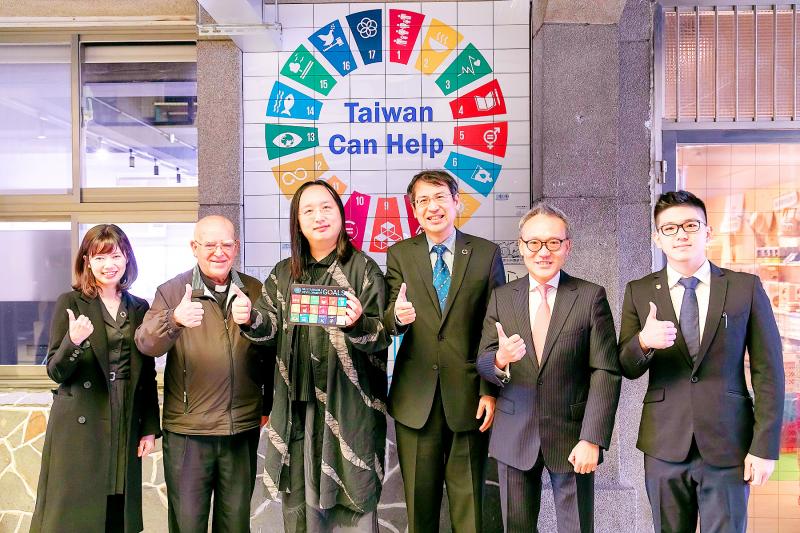Citigroup Inc has pledged US$250 billion to finance and facilitate climate solutions globally and reduce climate risk. The Environmental Finance Goal is part of the global bank’s new five-year 2025 Sustainable Progress Strategy to help accelerate a transition to a low-carbon economy. This builds on Citi’s previous US$100 billion goal announced in 2015 and completed last year, more than four years ahead of schedule.
“If there’s one lesson to be learned from the COVID-19 pandemic, it is that our economic and physical health and resilience, our environment and our social stability are inextricably linked,” Citi Asia Pacific CEO Peter Babej said in a statement.
“ESG [environmental, social and governance] has been front and center in Citi’s response to the health crisis, and evermore present in conversations with clients and communities across the Asia-Pacific. With the US$250 billion global goal, we want to be a leading bank in driving the transition to a low-carbon economy. The Asia-Pacific has a key role to play and we anticipate further acceleration in the region as businesses of all kinds shift to a more sustainable future,” Babej said.

Photo courtesy of Citibank
Citi has signaled its commitment to transitioning to a sustainable, low-carbon economy as the first US-based signatory of the UN Principles for Responsible Banking.
Citi released its 2019 Environmental, Social and Governance Report in April, detailing its performance across a number of priority ESG areas. Since the onset of the global COVID-19 pandemic, Citi has continued to deepen its ESG efforts in response to client and market demand. Citi and the Citi Foundation have thus far committed more than US$100 million to support virus-related community relief efforts around the world.
Citibank Taiwan Ltd (台灣花旗) chairman Paulus Mok (莫兆鴻) said: “In response to the group’s ESG policy, Citibank Taiwan is taking proactive measures during the pandemic to preserve the well-being of employees, serve clients and contribute to society, so as to maximize our positive impact as a responsible corporation.”
“This year, Citi Taiwan will continue to focus on ESG-related areas; further commit to environmental, social and governance efforts; and advance toward the sustainable progress goal. We will also issue our first certified ESG report,” Mok said.
Citi Taiwan has launched the Double the Good campaign, calling on all Citi Taiwan staff to show care and support for disadvantaged families, bereaved children and medical staff. Citi Taiwan would match every NT$1 that employees donate with NT$1.
To avoid large in-person gatherings, Citi Taiwan has adopted a different strategy this year by organizing multiple small-scale activities for the annual Global Community Day.
In appreciation for the hard work and contributions of Citi staff during the pandemic, Citi is offering a one-time compensation award, an extra day off and other benefits to support employees through this difficult time.

Intel Corp chief executive officer Lip-Bu Tan (陳立武) is expected to meet with Taiwanese suppliers next month in conjunction with the opening of the Computex Taipei trade show, supply chain sources said on Monday. The visit, the first for Tan to Taiwan since assuming his new post last month, would be aimed at enhancing Intel’s ties with suppliers in Taiwan as he attempts to help turn around the struggling US chipmaker, the sources said. Tan is to hold a banquet to celebrate Intel’s 40-year presence in Taiwan before Computex opens on May 20 and invite dozens of Taiwanese suppliers to exchange views

Application-specific integrated circuit designer Faraday Technology Corp (智原) yesterday said that although revenue this quarter would decline 30 percent from last quarter, it retained its full-year forecast of revenue growth of 100 percent. The company attributed the quarterly drop to a slowdown in customers’ production of chips using Faraday’s advanced packaging technology. The company is still confident about its revenue growth this year, given its strong “design-win” — or the projects it won to help customers design their chips, Faraday president Steve Wang (王國雍) told an online earnings conference. “The design-win this year is better than we expected. We believe we will win

Chizuko Kimura has become the first female sushi chef in the world to win a Michelin star, fulfilling a promise she made to her dying husband to continue his legacy. The 54-year-old Japanese chef regained the Michelin star her late husband, Shunei Kimura, won three years ago for their Sushi Shunei restaurant in Paris. For Shunei Kimura, the star was a dream come true. However, the joy was short-lived. He died from cancer just three months later in June 2022. He was 65. The following year, the restaurant in the heart of Montmartre lost its star rating. Chizuko Kimura insisted that the new star is still down

While China’s leaders use their economic and political might to fight US President Donald Trump’s trade war “to the end,” its army of social media soldiers are embarking on a more humorous campaign online. Trump’s tariff blitz has seen Washington and Beijing impose eye-watering duties on imports from the other, fanning a standoff between the economic superpowers that has sparked global recession fears and sent markets into a tailspin. Trump says his policy is a response to years of being “ripped off” by other countries and aims to bring manufacturing to the US, forcing companies to employ US workers. However, China’s online warriors